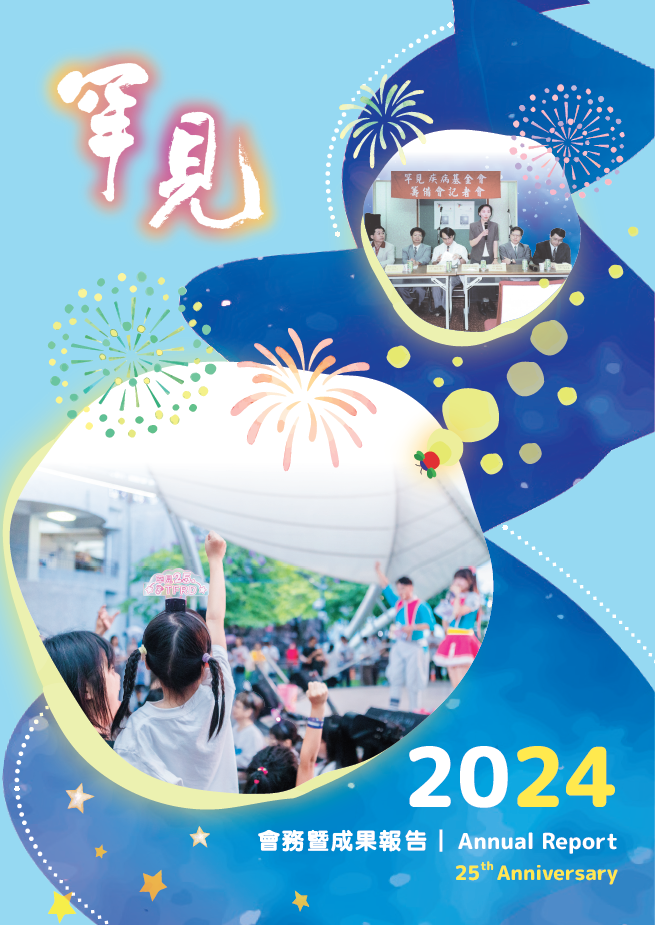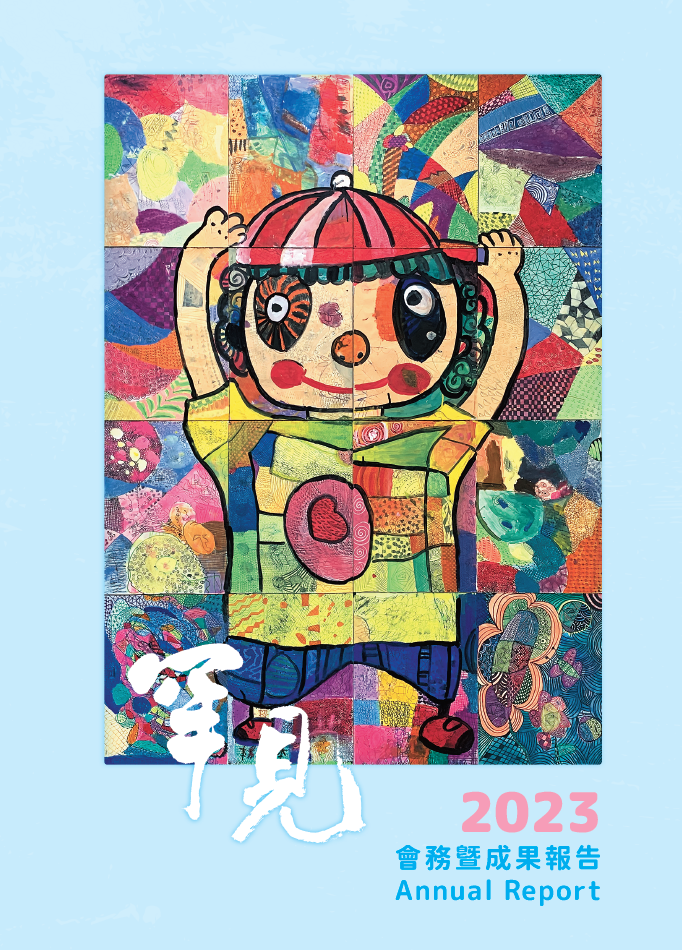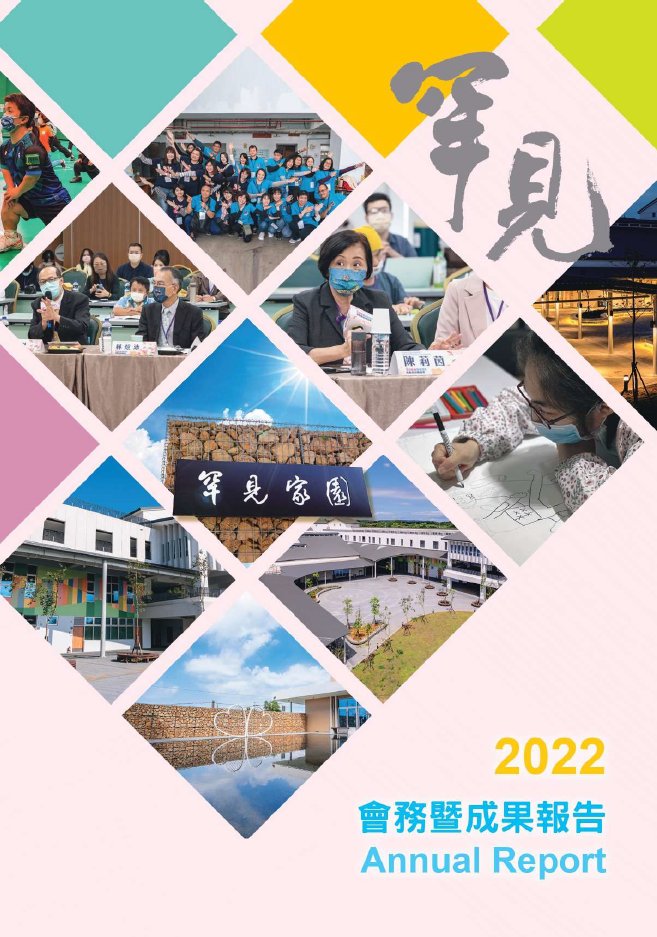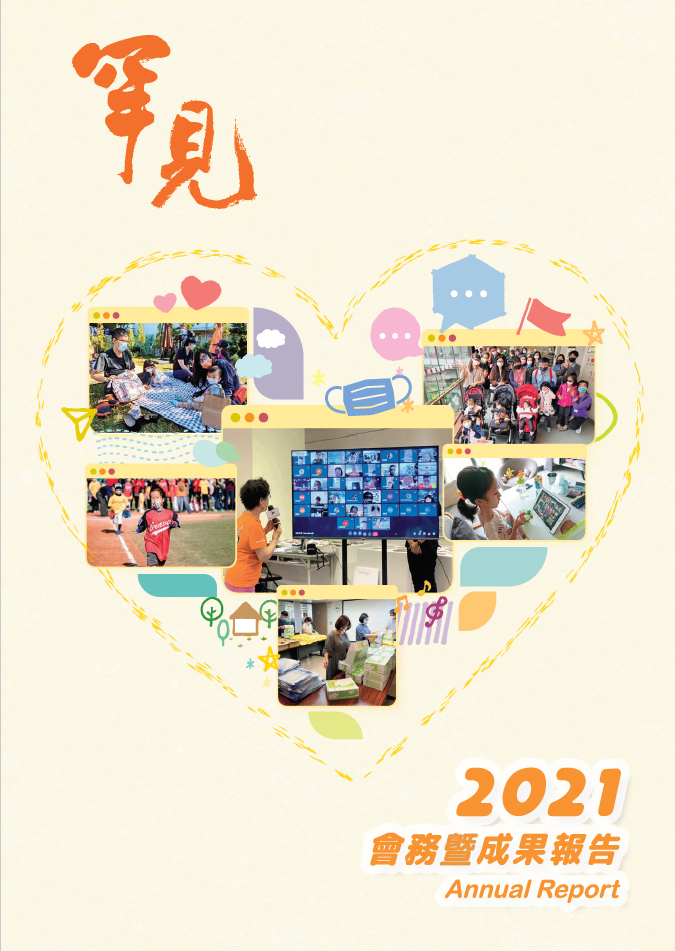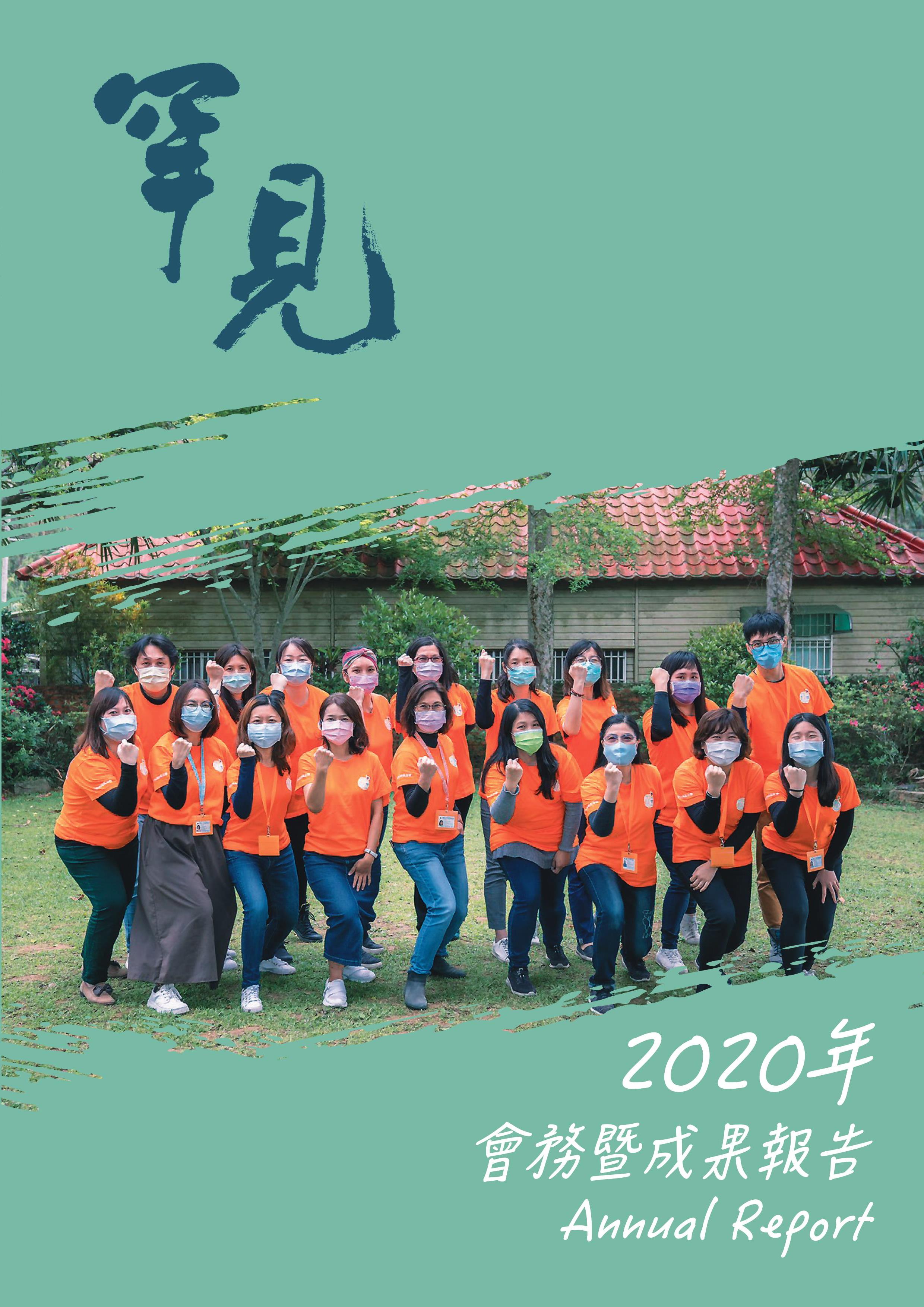Summary of 2024 Annual Report
Taiwan Foundation for Rare Disorders (TFRD), established in June 1999, has been an active force in advocating for rare disease patients in respect of medication, education, and employment, and will continue to give its best effort to light up the lives of many rare disease patients.
"We can't take care of our children forever, but a well-established system can." By the efforts of the two initiators, the founder Ms. Serena Wu and the co-founder Prof. Min-Chieh Tseng, who had kept advocating patients' rights and thus drove the society and government to pay attention to rare diseases. The “Rare Disease Prevention and Orphan Drug Act” was enacted in 2000, which enables Taiwan has better diagnosis, treatment, prevention of diseases and care of patients. Furthermore, TFRD continuously facilitates laws that categorize rare disorders as a disability. We also urge the government to include rare diseases into the NHI coverage as one of the catastrophic illnesses, allowing rare disease patients receive fully payment for orphan drugs. With our efforts, a special budget program for orphan drugs of global budget payment system was started in 2005.
TFRD launches “Expanded Newborn Screening Pilot Project” to advocate the concept of disease prevention in 2000. The new testing technology can screen nearly 30 kinds of rare diseases by using tandem mass spectrometry, which takes only few drops of blood from a newborn baby’s heel to test. Later in 2003, TFRD further devotes the subsidies program for indigenous newborns screening. Until now, TFRD subsidies 232,880 aboriginal and low-income newborn babies for the testing fee. Therefore, TFRD is awarded “Yuen-Shu Award” by the Council of Indigenous Peoples in 2017, which represents the special contribution to indigenous people. Now, the government’s subsidy program for newborn screening has increased to 21, which leads to a better protection of the health of newborns.
In addition to policy lobbying, TFRD provides direct services in medical care, psychological care and financial support to rare disease families as well as assistance programs for schooling and employment counseling. In 2024, we serve 286 kinds of rare diseases with nearly 20,000 patients. Our direct services are divided into Service Programs and Personalized Services based on the family needs. This year, the Service Programs provide 28,808 times services about economic benefits, tube feeding dietary supplement, psychological counseling, performing workshop and micro insurance. The Personalized Services provide 3,385 times for genetic counseling, nutrition counseling, social resource management and relative medical services. TFRD also helps 506 high-risk families to get through difficult times with continuous support and care and sets up a consultation hot line which allows general public to call for advices for rare diseases questions. Moreover, in response to the COVID-19 epidemic, TFRD has also launched the Rare Disease Family Livelihood Assistance Subsidy Plan to provide RD families with financial stability and help them go through the hard times so that the care for RD patients will not be suspended or reduced.
To enhance the public awareness of rare diseases, TFRD has been working closely with various organizations and through various media channels. In 2024, TFRD invites Wu Kang Ren as public ambassadors.
TFRD provides continuing education courses for the professionals who provide direct service to rare disease families in different fields, such as schools, welfare organizations, and nursing homes. In these courses, professionals can learn about the knowledge of rare diseases, and the skills of caring. In 2024, TFRD held a total of 52 campus advocacies, with a total of 11,438 teachers and students participating, and held 38 education advocacies for general public.
To promote public awareness of rare diseases, TFRD regularly releases publications, digital resources, official updates on the website, Facebook, Instagram and LINE. TFRD publishes 8 books with external partners as well as 27 books on rare disease series, 24 disease self-care brochures, 100 quarterly magazines with a total circulation of 1,004,700 subscribers, 137 issues of e-newsletter (stop publication), 147 kinds of leaflets; 21 CDs/DVDs, 13 annual reports. In particular, we publish 6 picture book series with 74 books of “The Story of Firefly Island” based on the materials of radio drama. We also made 3 playing cards for public to recognize rare disease easily.
As for rare disease research, TFRD offers the research grants and scholarships to the experts, scholars and medical professionals in Taiwan. Until now, we issue 48 projects for NT$23.29 million and 167 scholarships for NT$6.89 million. The yield of those researches is highly productive, especially in the improvement of patient’s quality of life and medical development.
Rare Welfare Center is another key project of TFRD's 2nd decade establishment. There are includes 3 key highlights: (1) Gene Education Center; (2) Welfare Device and Service Center; (3) Horticulture Classroom and Greenhouse. With the opening of Rare Disease Welfare Center in October 2022, 2024 was also a year that services were fully promoted. The staffs, including social workers, medical specialists, social education specialists, and colleagues from horticulture and agriculture gradually joined in, forming a solid foundation for services.
For Rare Disease Welfare Center, in 2024, a total of 112 families were invited to join TFRD, with 1,138 visits (including telephone interviews), financial assistance to 177 patients, psychological consultation services for 170 people, spiritual growth groups for 13 people, musical games course for 450 people and 138 people participate physical fitness & spiritual courses. As for the “talent training course” are very popular among children, more than 60 students enjoy the course. Rare Disease Welfare Center will continue to expand its service capabilities, strengthen local social connections, and serve more families with rare diseases.
The treatment and care for rare diseases is a lifelong journey. We invite the general public to be the volunteers or donors of TFRD. With your help and love, rare disease families will never give up.

